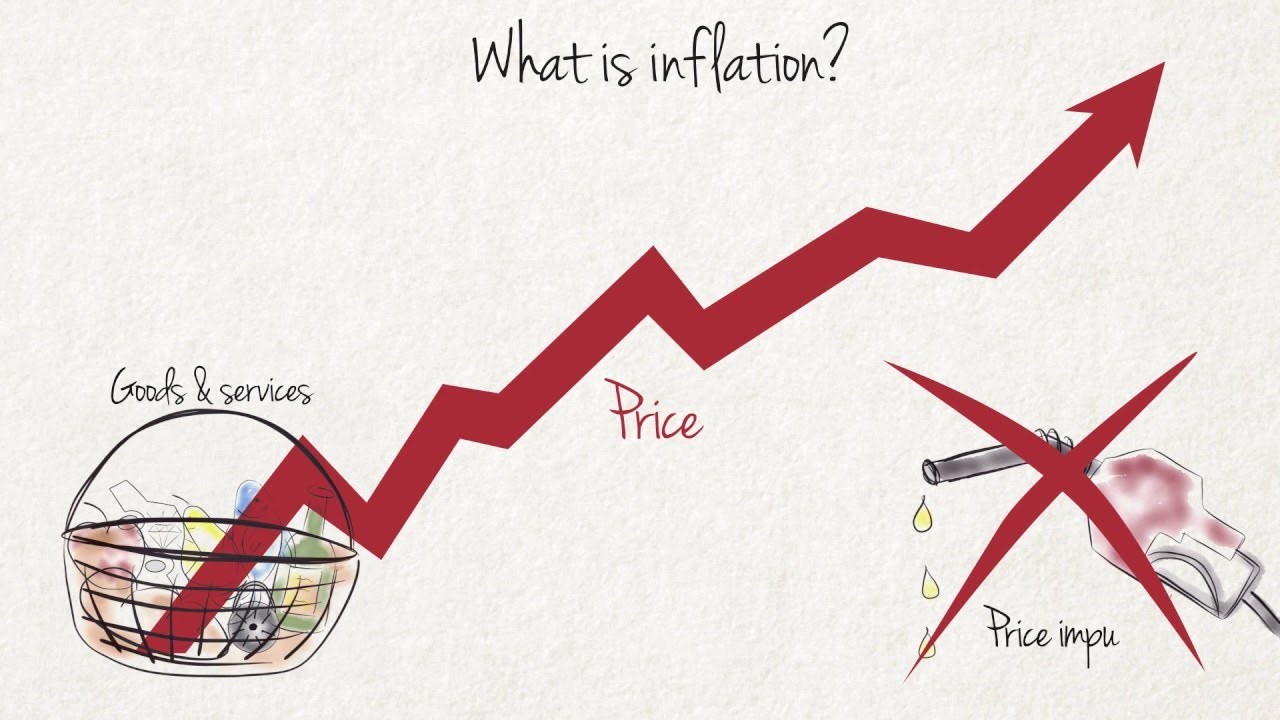
Due
to the unique characteristics of coins, the relationship between
cryptocurrencies and inflation is quickly becoming more complex. There is still
a belief in the inflation-resistant qualities of assets associated with Bitcoin
despite arguments to the contrary. This article explores how inflation may
affect the world of cryptocurrencies.
What
Is Inflation?
The
typical signs of inflation include an increase in the cost of consumer goods
and a slow decline in the value of currencies. Cryptocurrencies like Bitcoin
often exhibit minimal inflation due to their finite supply.

Image:
Inflation
Hyperinflation
is a condition where the purchasing power of a currency decreases as inflation
increases. Hyperinflation is typically defined as a sustained upward trend in
the costs of goods and services across an economy. As a result, purchasing the
same goods and services requires using more currency units.
Inflation has an impact on all goods and services, including utilities, automobiles, food, healthcare, and housing. Due to the decline in the value of money, both businesses and individuals are affected. Consumers experience decreased purchasing power, decreased savings, and delayed retirement as a result.
Read more:
The
Impact of Inflation on Cryptocurrency
Given
that cryptocurrencies have only been around for a little over a decade,
predicting their impact on inflation is a difficult if not impossible task.
Most of this time saw little to no significant inflation in notable economies.
While
we will explore some current understanding in this article, it may be wise to
seek advice from a financial advisor with knowledge of cryptocurrency investments regarding how to handle inflationary spikes.
1. Cryptocurrency
is not currency
The
first cryptocurrency Bitcoin serves as an example of how cryptocurrencies have
emerged as unconventional assets. Cryptocurrencies work on decentralized networks and rely on cryptography for security. This is unlike fiat currencies
that are issued and governed by governments.

In
this case, the impact of inflation on cryptocurrencies manifests differently.
Bitcoin and many other cryptocurrencies incorporate scarcity principles into
their development. For example, Bitcoin has a fixed supply of 21 million coins,
a feature that limits the possibility of significant inflation. This structure
has led some to view cryptocurrencies as potential hedges against traditional
inflationary trends.
2. Cryptocurrency
is not completely an inflation hedge
Using cryptocurrencies as a protection against inflation is often debated. Real-world situations are more complicated, even though the scarcity element ingrained in their design suggests a degree of protection against traditional inflationary pressures.
In the past, cryptocurrencies have experienced large price fluctuations that have been influenced by things like market sentiment, legislative changes, technological advancements, and general economic trends. Although their design is based on scarcity, which theoretically could offer some resilience, it does not ensure immunity from the complex forces that affect their valuation.

Image: Hedge against inflation
3. Investors
have a role to play
As
the world of cryptocurrencies and inflation intersect, investors find
themselves at a crossroads. A strategic approach to risk management is
necessary due to the inherent volatility of cryptocurrency markets, which can
magnify both gains and losses. Investors need to understand the subtle
differences between traditional economic indicators and the unique features of
cryptocurrencies.
Some
investors have turned to cryptocurrencies as a speculative alternative or
potential haven during times of economic decline. Nevertheless, it is important
to understand that while some features of cryptocurrencies may line up with features
that are resistant to inflation, they are still subject to the dynamics of the
larger financial system.
Conclusion
Since
there is currently no trading history for cryptocurrencies during periods of
inflation, it is impossible to accurately predict how prices will change as a
result. Given the risks of cryptocurrency investment irrespective of market
conditions, collaborating with a cryptocurrency-experienced financial advisor
becomes vital to navigate investment timing decisively.
Due to the unique characteristics of coins, the relationship between cryptocurrencies and inflation is quickly becoming more complex. There is still a belief in the inflation-resistant qualities of assets associated with Bitcoin despite arguments to the contrary. This article explores how inflation may affect the world of cryptocurrencies.

Written by Sam